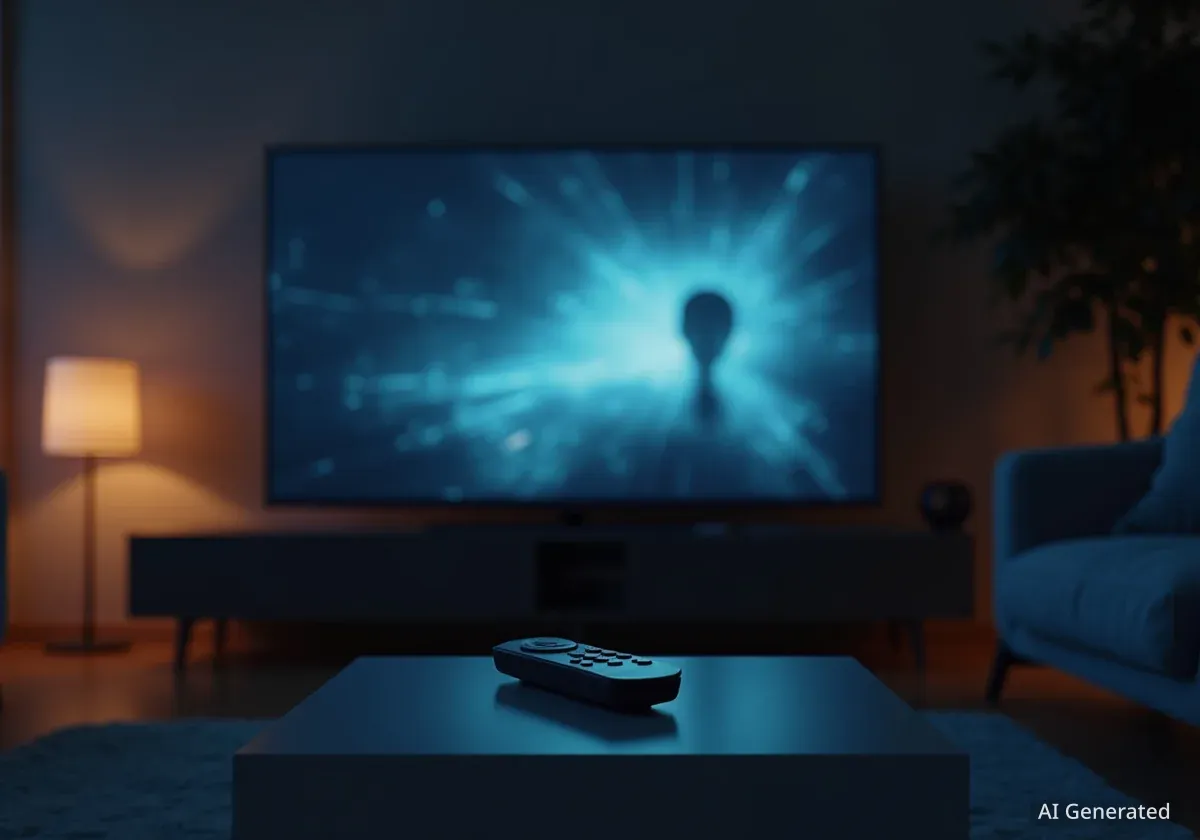The use of artificial intelligence to alter images in real estate listings is creating a significant gap between online presentations and the actual condition of properties. A recent example from Detroit, Michigan, where a rental home's photos were heavily manipulated, highlights a growing trend that is misleading prospective renters and buyers and raising serious ethical questions about transparency in the market.
This practice, often called “house catfishing,” involves more than just virtual staging; it fundamentally changes a property's appearance, from altering rooflines to digitally creating pristine landscapes. As this technology becomes more accessible, consumers face increasing difficulty in distinguishing between enhanced marketing and outright deception.
Key Takeaways
- AI is being used to create highly unrealistic images of homes for sale and rent, going far beyond traditional photo touch-ups.
- A widely circulated example of a Detroit rental on Zillow showed significant alterations when compared to its actual appearance on Google Street View.
- The practice can lead to wasted time for property seekers and potential financial loss for those who lease or buy based on misleading images.
- This trend has sparked an ethical debate in the real estate industry about deceptive marketing and the need for new disclosure regulations.
The Rise of Digital Deception in Property Listings
The real estate market has long used technology to make properties more appealing. Virtual staging, where digital furniture is added to empty rooms, has been a standard practice for years. However, the latest advancements in generative AI have enabled a new level of image manipulation that fundamentally alters a property's structure and condition.
A prominent case that drew public attention involved a rental home in Detroit. The listing on Zillow featured images that portrayed a well-maintained house with a neat exterior. However, artist DeAnn Wiley compared these photos to the property's appearance on Google Street View and discovered major discrepancies. The AI-enhanced images had changed the roofline, removed a damaged pathway, and presented a version of the home that did not exist in reality.
From Virtual Staging to Virtual Remodeling
Traditional virtual staging aims to help buyers envision a furnished space. The new wave of AI alteration goes much further, effectively performing a digital renovation. This can include changing wall colors, replacing flooring, and even altering the exterior structure and landscaping of a home, all without any physical work being done.
This practice is becoming more common as landlords and sellers seek a competitive edge in a crowded digital marketplace. The goal is to make a listing stand out and attract more potential tenants or buyers. However, it crosses a line from marketing enhancement into potential misrepresentation.
Consequences for Renters and Buyers
For individuals searching for a new home, AI-altered images can lead to significant frustration and wasted effort. A prospective renter might travel to view a property based on stunning online photos, only to find a home in a state of disrepair that was concealed by digital manipulation.
The consequences are even more severe for those who make decisions without an in-person visit, a practice that has become more common in long-distance moves. Signing a lease or making an offer on a home based on doctored images can lead to immediate regret and significant financial complications.
According to a 2022 survey by the National Association of Realtors, 89% of all buyers used the internet in their home search, underscoring the critical role that online listings and their accompanying photos play in the decision-making process.
These digitally enhanced realities can mask serious issues, such as structural damage, water stains, or outdated fixtures. When the actual property fails to meet the expectations set by the listing, it erodes trust between consumers and real estate professionals.
An Ethical Crossroads for the Real Estate Industry
The growing use of heavily modified property images has ignited a debate within the real estate industry. Some agents argue that AI tools are simply an evolution of marketing, similar to using wide-angle lenses to make rooms appear larger. They place the responsibility on the consumer to perform due diligence and visit a property before committing.
"While technology offers powerful tools to showcase a property's potential, there must be a clear line between aspirational marketing and factual misrepresentation. Trust is the cornerstone of our industry, and misleading imagery threatens that foundation."
However, critics argue that these practices are inherently deceptive. They contend that digitally altering the physical state of a property constitutes false advertising. This has led to calls for greater transparency and the establishment of clear industry guidelines or even regulations requiring disclosure when images have been significantly altered by AI.
The Need for Clear Standards
Without industry-wide standards, the definition of acceptable photo enhancement remains subjective. Key questions remain unanswered:
- At what point does editing a photo cross the line from a minor touch-up to a material misrepresentation?
- Should listings be required to label images that have been generated or significantly altered by AI?
- What legal recourse do buyers or renters have if they feel they were deceived by manipulated photos?
Addressing these questions is becoming increasingly urgent as AI technology becomes more sophisticated and widespread, making it harder for the average person to detect alterations.
A New Market for AI Enhancement Services
Capitalizing on this trend, a new niche industry has emerged, offering AI-powered image enhancement services specifically for real estate. Companies like Interior AI promise to transform standard property photos into captivating images that can attract more views and higher offers.
These services allow users to upload photos of a property and have AI redesign the interior, change the exterior paint, or even add a swimming pool to the backyard. While these tools can be valuable for visualizing potential renovations, their use in active listings without disclosure contributes to the problem of consumer deception.
This dynamic creates an imbalance where property owners and agents with access to these advanced tools can create highly idealized versions of their properties, leaving buyers and renters to navigate a marketplace where what you see online is not always what you get. The long-term health of the real estate market may depend on finding a balance between innovative marketing and honest representation.





